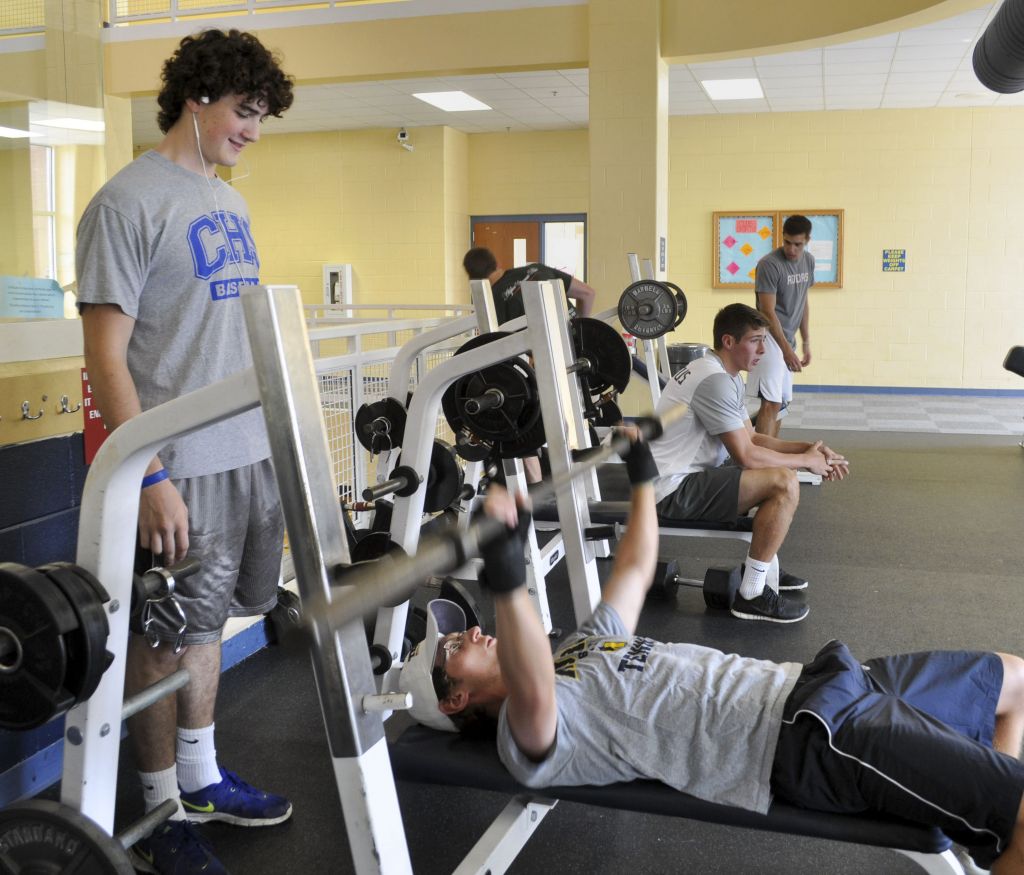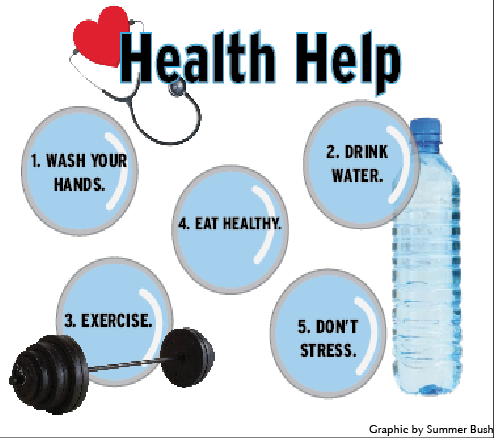
Riley Thornton, sophomore from Charleston, Mo.,and Ryan Kennedy, senior from Johannesburg, South Africa. exercise to stay healthy at the Wellness Center.
While students are coughing and sneezing their way to Health Services, Judy Lyle, interim associate director and health educator at Health Services, prepares for a day’s work filled with illnesses and bacteria.
“We get everything from sore throats, urinary tract infections and injuries,” Lyle said. “We’re seeing a little bit of everything.”
Students are already coming into Health Services with a wide variety of problems even though the school year began only three weeks ago.
Although Lyle receives several cases during her busy day, she said respiratory problems are the most common.
“Probably the most things that we’re seeing is respiratory issues caused from allergies,” Lyle said. “Even if people don’t have seasonal allergies, the air has been very stagnant and hot; the tobacco barns are starting to fire and there is lots of pollen.”
Allergies may seem like a slight problem that can be diagnosed quickly and easily; however, with the pollen in the air, students are more susceptible to getting a cold, which can lead to more serious diseases like bronchitis, Lyle said.
In order to combat these diseases, Lyle suggests several precautions students can take to stay healthy during the semester.
“The first thing and always first is wash your hands and wash them frequently,” Lyle said. “Keep them away from your face.”
By touching the face a lot, students can transmit diseases from their hands to their face, which causes them to get sick. Lyle said it is best to use warm soap and water, wash them for a minimum of one minute and pat them dry. Hand sanitizer is an acceptable substitute as well.
“Two: drink lots of fluids and keep well-hydrated,” Lyle said. “Water is most important. Stay away from sodas, not too much caffeine. Minimize or eliminate alcohol because it dehydrates the body.”
The purpose of drinking water is to hydrate the body. Drinks that contain caffeine or alcohol are dehydrating, which makes body secretions thicker and clogs up the sinuses, Lyle said.
Eating healthily and exercising is also important because it builds up the immune system. Fruits and vegetables are especially important; sugar is OK but shouldn’t be consumed all the time, Lyle said.
“Exercise 20-30 minutes everyday above walking on campus to get to class,” Lyle said.
Physical health is important because one thing leads to another, and things like the common cold can lead to greater illnesses.
Health Services also deals with mental health. If the case cannot be solved using medication, students are referred to the University’s counseling office, Lyle said.
Stress and mental health issues can have a severe impact on physical health.
“Stress puts the body at risk for getting sick. It depletes the immune system,” Lyle said. “Sometimes students come in with nausea and vomiting; they’re so stressed out that the body can’t take it.”
Avoiding physical health problems can sometimes mean decreasing the stress put on students. Although it is difficult to overcome stress each semester, students can always refer to Health Services for their needs.
Story by Madison Wepfer, Staff writer